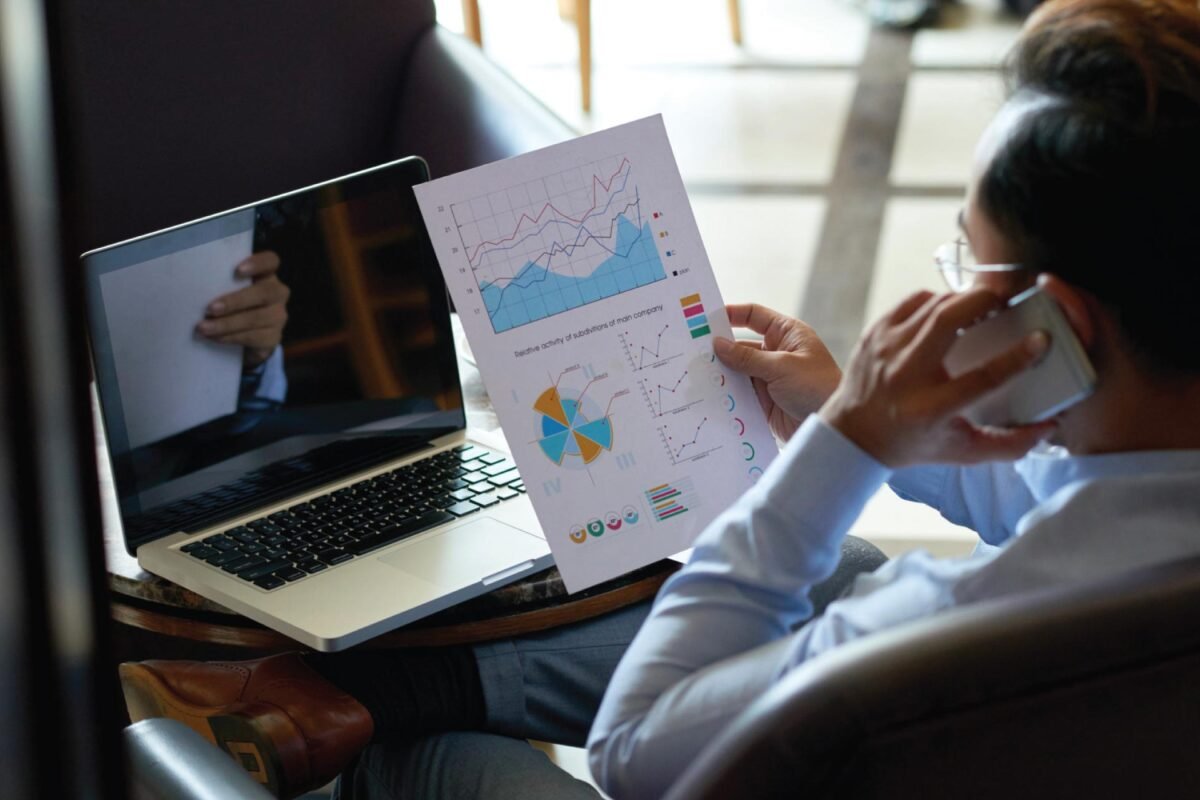AICPA’s 360 Degrees of Financial Literacy features tools and resources to empower Americans to make better financial decisions as New Year resolutions for 2021.
The annual ‘fresh start’ that comes with a new year is fast approaching. This is a great opportunity for Americans to review their overall financial situation, check-in on their goals and set some new ones. To help Americans improve their financial standing in the year ahead, members of the American Institute of CPAs’ (AICPA) National CPA Financial Literacy Commission suggest the following 2021 New Year’s financial resolutions:
Continue Saving into 2021
“Many Americans found themselves staying home more often this year while observing COVID-19 safety measures. As a result, studies have shown that individuals aren’t spending as much, in some cases about 25%-30% less. These reductions are most concentrated in travel, entertainment, and restaurant spending. When things get back to normal, make a plan to ease spending back into your budget carefully so you can keep your saving rate going strong.” -Gregory J. Anton, CPA/CGMA, chairman of the AICPA’s National CPA Financial Literacy Commission
Grow Savings by Banking Your Former Commuting Costs
“If you’ve shifted from working from an office to working from home, consider re-directing your old commuting costs into a savings account. Keeping track of this ‘found money’ and saving it promptly can bolster your financial wellness substantially.” -Jina Etienne, CPA member of the AICPA Financial Literacy Commission
Take Advantage of Any Debt Reduction Resources Available
“Whether it’s the result of being furloughed from work, working reduced hours, or losing a job, many Americans are struggling to make ends meet and keep current with debt payments. While they may feel like they’re stuck between a rock and a hard place, they shouldn’t assume debt repayment terms are locked in.
Consider resources such as a forbearance on your mortgage or negotiating more flexible payback terms with your credit card company or landlord. It is always best to know all the options available.”
-Michael Landsberg, CPA/PFS, member of the AICPA Financial Literacy Commission
Check Your Withholdings
“At the end of 2019, the IRS released a new W-4 form, which employees fill out so that their employer can calculate how much federal tax to withhold from their paycheck. Unfortunately, AICPA research shows that only 1 in 4 tax-filing Americans have utilized the new Form W-4. If you haven’t updated your withholding in the past year already, it’s a good idea to revisit that now to help make sure you avoid a surprise come Tax Day. If you feel more or less tax should be withheld going forward to fit into your financial plan, contact your human resource representative.” -Kim Hardy, CPA, member of the AICPA Financial Literacy Commission
Improve Your Own Financial Literacy
“Education is an investment in yourself. There are many sources for financial advice but blindly trusting just one of them can be a very expensive mistake. People work so hard to earn their money. They should not be frivolous with how they spend it or how it’s invested. Everyone should take a little time to educate themselves on financial literacy because being smart with your money will make all aspects of your life easier. The AICPA’s 360 Degrees of Financial Literacy website has some great resources to get you started. Start with articles in ‘The Basics’ section and explore wherever your interest take you from there.” -Matt Rosenberg, CPA/PFS, member of the AICPA Financial Literacy Commission
Finally Create That Budget
“The kickoff of a new year is a great time to collect all your recent bank and credit card statements, as well as sources of income and spending to create a baseline of income and expenses. Once you have a baseline, you can start breaking down expenses into needs and wants. The goal here is to weed out any ‘want’ that is negatively impacting your overall spending plan. Americans who need help creating and managing a monthly budget can use the AICPA’s budget analysis calculator to run a report that will show them where their money is going and identify areas for improvement.” -David Almonte, CPA/CGMA, member of the AICPA Financial Literacy Commission
Get the Kids Involved
“Good money habits and behaviors aren’t just for the adults in the household. Teach your kids! Whether they’re in grade school, middle school, high school, or even college— it’s never too early to start building good financial attitudes and behaviors. There are many resources on the AICPA’s 360 Degrees of Financial Literacy website for families and parents to start incorporating financial education at home. Commit to helping your kids build a solid financial literacy foundation in 2021.” -Tim Todd, CPA, member of the AICPA Financial Literacy Commission
Take Small Consistent Steps to Boost Your Savings
“When it comes to saving, the saying ‘a little goes a long way’ is a great approach. Building up savings takes place over time. A great strategy is to make small deposits on a regular basis. It may not seem like much, but small deposits over a long period of time can yield huge results. Even just an extra $10 a week deposited into a savings account will add up to over $2,600 in 5 years. If you can commit to $25 a week, you’d have over $6,500 in 5 years. Consistent small steps really can add up!” -Jina Etienne, CPA, member of the AICPA Financial Literacy Commission
Schedule Regular Budget Check-ups
“Having a budget is the first step to getting a handle on your finances. Once you understand where your money is coming from and what it is going towards, stay on top of it and check-in regularly to make sure it is working for you. Review your bank and credit card statements to see the trends in your spending. This insight will be helpful in determining where you may be overspending. Use it to fine-tune your budget.” -Tami Bolder, CPA, member of the AICPA Financial Literacy Commission
Start an Emergency Savings Fund
“We’re frequently reminded of how quickly and profoundly disasters like hurricanes, wildfires, floods and even a pandemic can bring on unexpected costs or disruptions to our income.
Be prepared for life’s curveballs by having an emergency savings fund. Typically, three to six months of expenses is desirable; even if you can’t save all of that now, start small by contributing whatever you can afford each pay period or month and build up the savings over time.
Having those funds set aside for an emergency will help you minimize the stress and anxiety in a difficult time.” -Tim Todd, CPA, member of the AICPA Financial Literacy Commission
Get Those Estate Planning Documents Drafted or Updated
“Death and incapacity are scary topics that we don’t like to confront. However, having documents in place—such as a will, an advanced medical directive, and a durable power of attorney—can make a challenging time more manageable for your loved ones. Commit to getting your estate planning documents drafted. If you already have documents drafted, commit to having them reviewed or updated—these documents can get ‘stale’ due to time and life changes. It’s important to make sure your documents work for you and your wishes.” -Tim Todd, CPA, member of the AICPA Financial Literacy Commission
Natural Disasters Happen, Be Prepared
“In the face of a natural disaster, having a plan in place will help to ensure you can focus on what’s most important, while also minimizing the financial impact. There are some documents you will need right away, and others that you may not need right away but will be very difficult to replace if they are lost or destroyed. The key documents to get your emergency preparedness plan started are detailed in the 360 Degrees of Financial Literacy ‘Disaster Action Plan.’ This plan shares easy steps all Americans should take to protect their family and their finances to help ensure they are as prepared as they can be for the financial impact of a natural disaster.” -Neal Stern, CPA, member of the AICPA Financial Literacy Commission
Create a ‘Crisis’ Budget for Times of Uncertainty and Financial Distress
“If 2020 has taught us anything, it is to expect the unexpected. Lay out your current income sources and see how those compare to current living expenses. Put together a crisis budget that only includes money you absolutely have to spend for a 3 month period – this is the amount you need to cover with any severance, unemployment, emergency fund and any other income you can bring in should you experience an income interruption in the future. When trimming back expenses, really focus on the ‘needs’ in your life prior to resorting to debt which may only provide a short-term solution to a much bigger and long-lasting problem.” -Michael Landsberg, CPA/PFS, member of the AICPA Financial Literacy Commission
Banish Recurring Charges
“Automatic payments, such as retirement contributions, can be a great way to save consistently over time; however, on the flip side, automatic withdrawals for subscription services can wreak havoc on your finances if not kept in check. Your monthly credit card or bank statement may show money being drained every month by memberships, subscriptions or other services that may have started as long-forgotten free or low-cost trials. Vendors are counting on you to lose focus on these charges and keep the money flowing from your pocket to theirs. Taking a hard look at your statements and cancelling services you rarely or never use is an easy way to give yourself more money every month.” -David Almonte, CPA/CGMA, member of the AICPA Financial Literacy Commission
Use Lower Interest Rates to Empower Debt Paydown
“Lower interest rates can reduce the required payments on variable-rate credit cards and other debt, but maintaining the same payments you made before a rate decline will reduce the amount you owe more quickly and reward you with greater interest savings in the future, speeding up your path to a debt-free future. Take advantage of this great opportunity to painlessly bring down debt.” -Neal Stern, CPA, member of the AICPA Financial Literacy Commission
Shop Around for Higher Interest on Savings
“With interest rates lowered by the Federal Reserve, banks are quick to jump on the bandwagon by reducing the rates they pay consumers on savings, often to near-zero. The good news is that banks and financial institutions still compete for your money, and some may pay rates that are substantially better than what your bank offers. It pays to shop around, including a look at online banks and credit unions, to make sure you’re earning the best rate on your savings.” -Neal Stern, CPA, member of the AICPA Financial Literacy Commission
Get Started on Saving for Retirement Today
“Prepare for retirement now, no matter how distant it may seem. If you have not already, take time to understand your employer’s retirement plan options and be sure you are taking advantage of all the offerings and matches available. Even if you can only afford to put away a little, through the power of compound interest, by the time you retire it can go a long way.” -Jane Rubin, CPA, member of the AICPA Financial Literacy Commission
Consider Refinancing Your Existing Mortgage
“Rates are near all-time lows so refinancing an existing mortgage has never been this attractive. A lot goes into the decision, but many homeowners can get their monthly payments dramatically lowered. Taking it further, certain homeowners with substantial equity locked into their homes can pursue a ‘cash-out’ refinance and use the proceeds responsibly for other debt reduction or necessary expenses.” -Michael Landsberg, CPA/PFS, member of the AICPA Financial Literacy Commission
Get Your Free Credit Report
“Every year you can get one free copy of your credit report (and one for your spouse/children) from each of the three nationwide credit reporting companies. It is good practice to review your credit report at least annually to check for completeness and accuracy. This will enable you to identify any errors and correct them right away. An incorrect credit report could be enough reason to deny you a job, loan request, or charge you a higher interest rate.” -Michael Landsberg, CPA/PFS, member of the AICPA Financial Literacy Commission
Hit the ‘Easy Button’ on Saving for Retirement
“Many people invest in their retirement accounts by making large, one-time, contributions at the end of the year. Start the new year by automating the investment process and making smaller, monthly, recurring contributions. This will take less of your time and ensure your contributions do not get forgotten or delayed. Also, contributing the same amount throughout the year will generate more wealth for you over time than making an equivalent one-time contribution at year-end. This is because the longer money is invested the more opportunity it has to grow.” -Matt Rosenberg, CPA/PFS, member of the AICPA Financial Literacy Commission
Pay Attention to Your Money
“Once money is earned or invested it should not be forgotten. Continuous attention to your finances is just as important as eating a healthy diet and exercising. This doesn’t mean overreacting to market swings or over-trading. It means knowing your long-term plan and keeping a watchful eye to make sure you are following it. Investment services, fees, and products change throughout time and you want to be sure you’re always getting the best.” -Matt Rosenberg, CPA/PFS, member of the AICPA Financial Literacy Commission
For more such Updates Log on to https://fintecbuzz.com/ Follow us on Google News Fintech News

AICPA
The AICPA’s 360 Degrees of Financial Literacy Program is a nation-wide, volunteer grass-roots effort to help Americans develop a better understanding of money management and take control of their financial lives. Since 2005, the AICPA has been empowering people to make better decisions with the tools and resources on the 360 Degrees of Financial Literacy website. Financial Literacy is the cause of the CPA profession and the 360 Degrees of Financial Literacy program is the AICPA’s flagship corporate social responsibility effort. These efforts are focused on financial education as a public service and are completely free from all advertising, sales, and promotions. Connect on Facebook for tips, insights and motivation to keep your finances on track.



